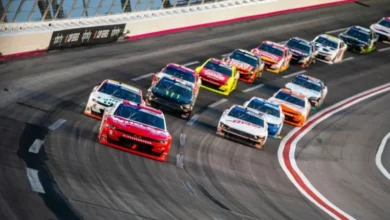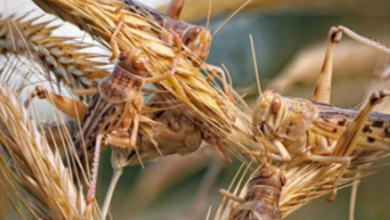World War Two aerial photos opened to public for first time
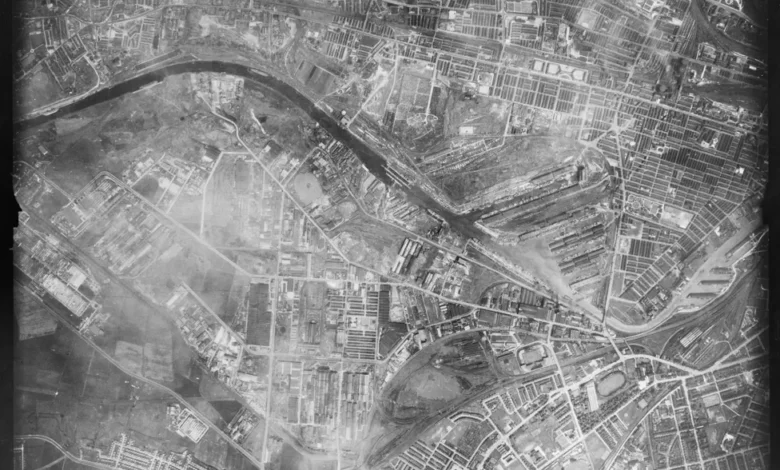
A collection of photographs taken during World War Two have been opened to the public for the first time.
The aerial images were taken by the US Army Air Forces (USAAF) Photographic Reconnaissance units while stationed at bases across England in 1943 and 1944.
The 3,600 photographs offer a birds-eye view of the country as it changed during the war.
This includes bomb damage to towns and cities as well as Old Trafford football stadium in Greater Manchester.
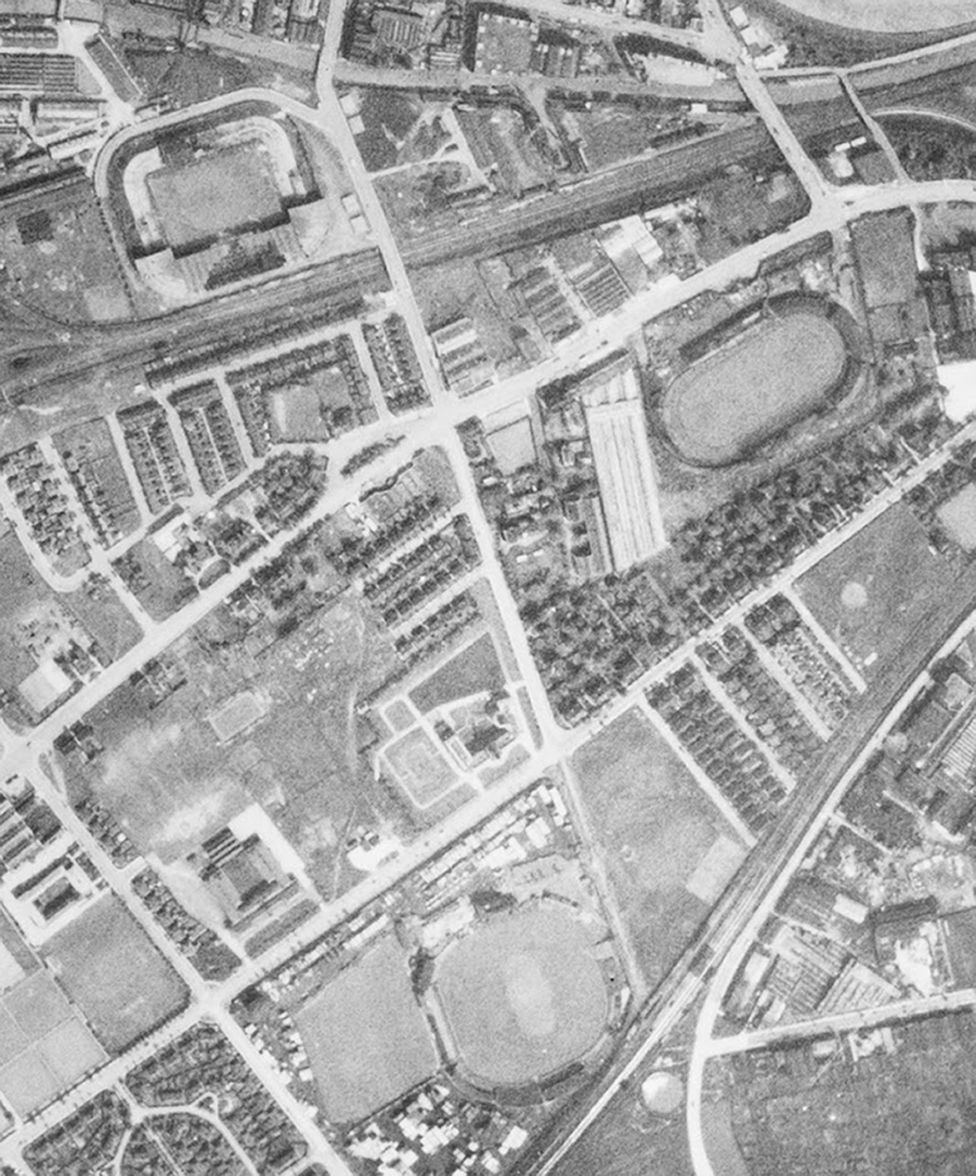
Damage to the main stand of the football ground can be seen in the photo, after it was hit in a bombing raid in March 1941.
The home of Manchester United was not used again for football until 1949.
They also captured ancient monuments surrounded by anti-tank defences in West Sussex, such as Cissbury Ring Iron Age hillfort in Worthing where ditches and concrete cubes can be seen laid out to impede an enemy advance.
There is also a low-level photograph showing part of a US Army camp in Wiltshire which shows firing ranges in the foreground while troops play a game of baseball in a recreation field in the top left of the image.
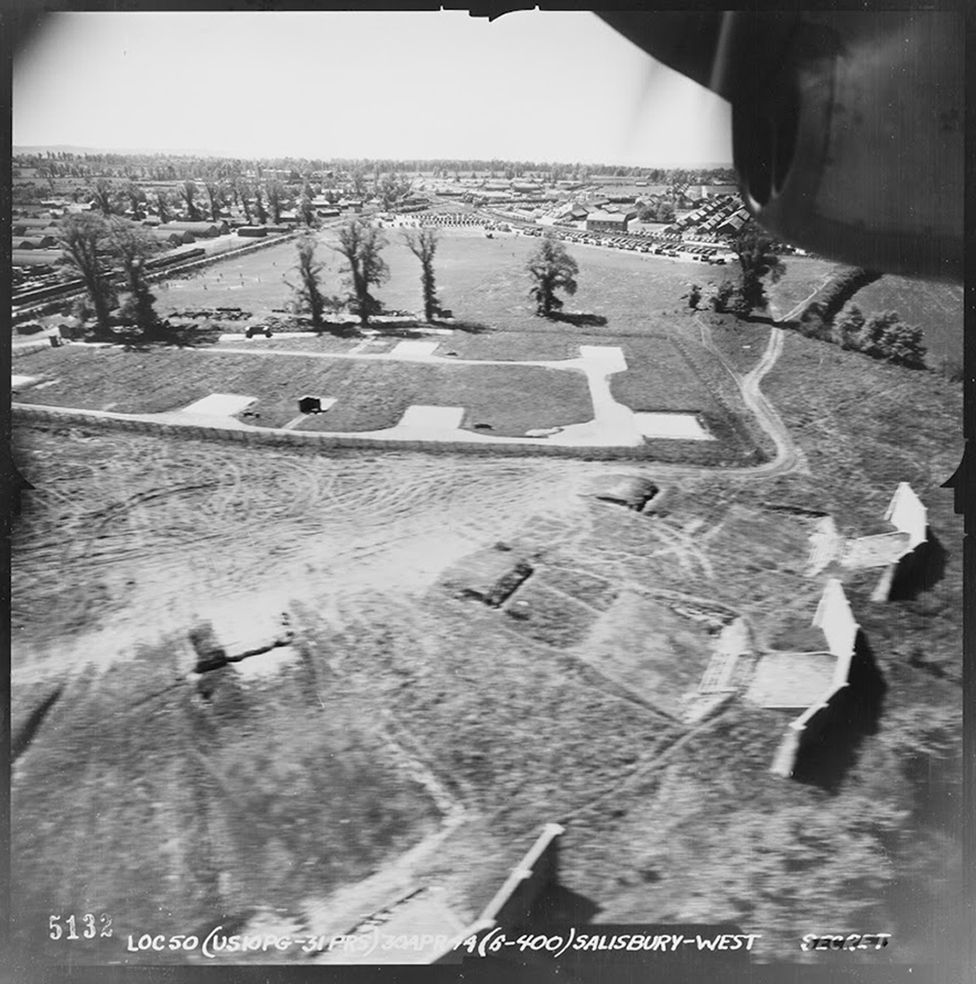
The collection has been made available to the public for the first time in an online, searchable map on the Historic England Archive.
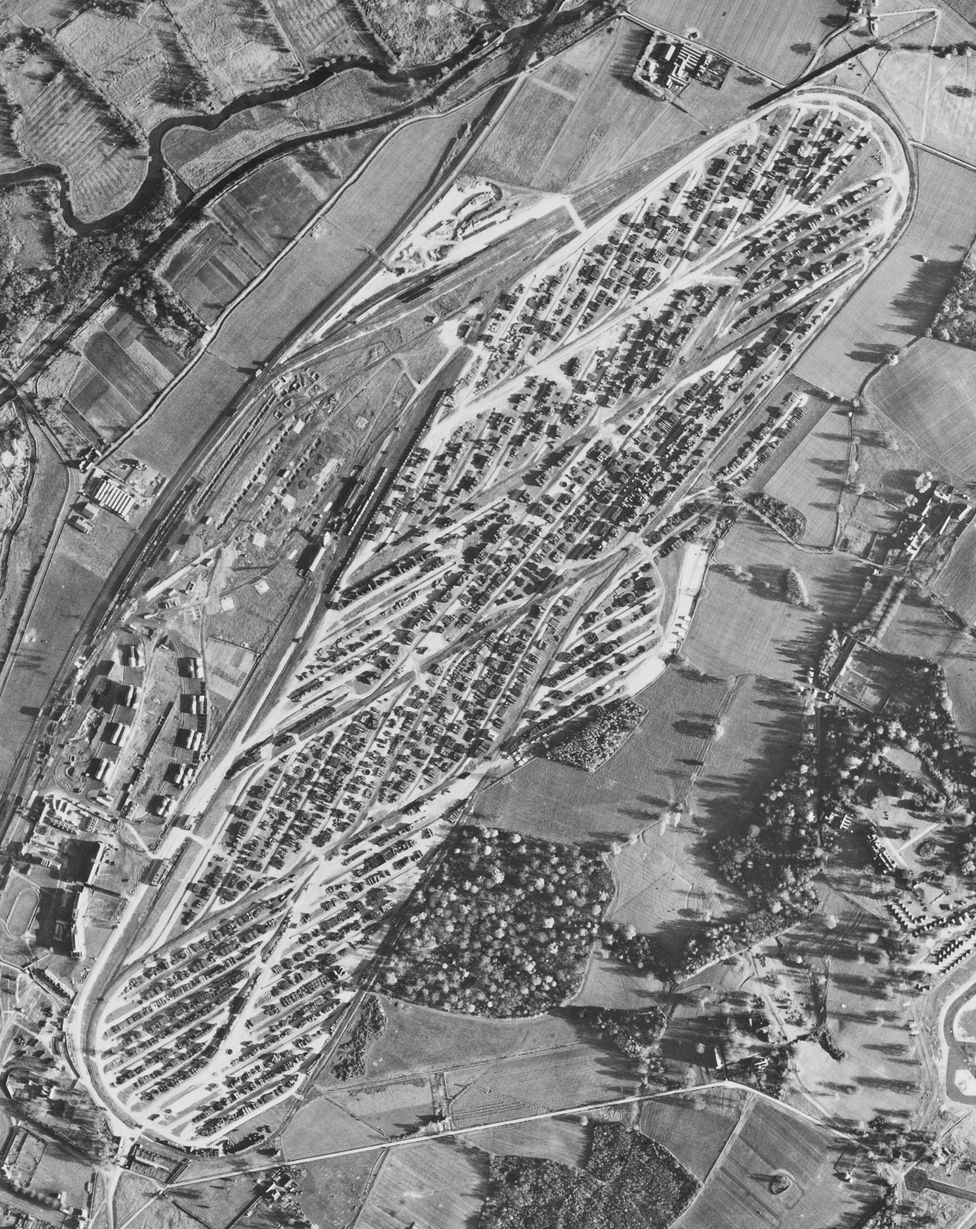
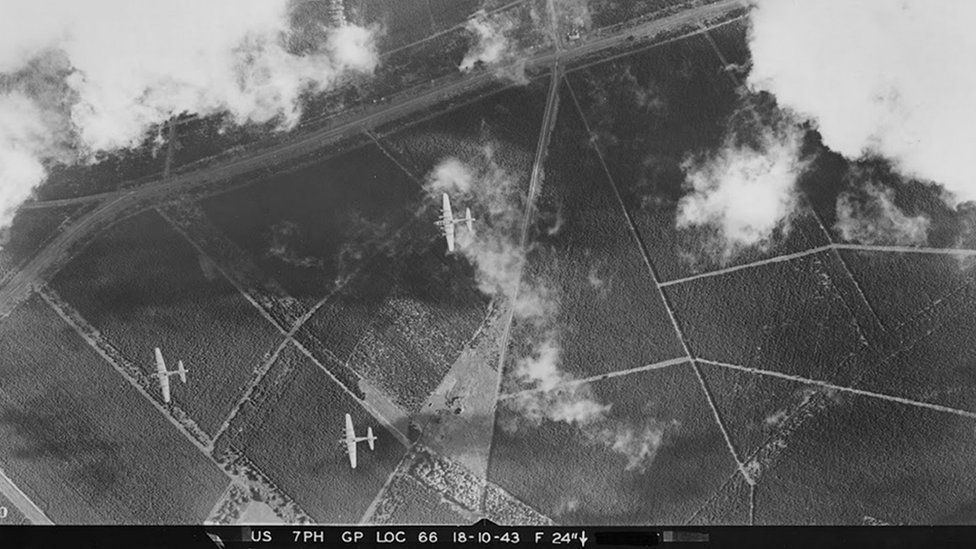
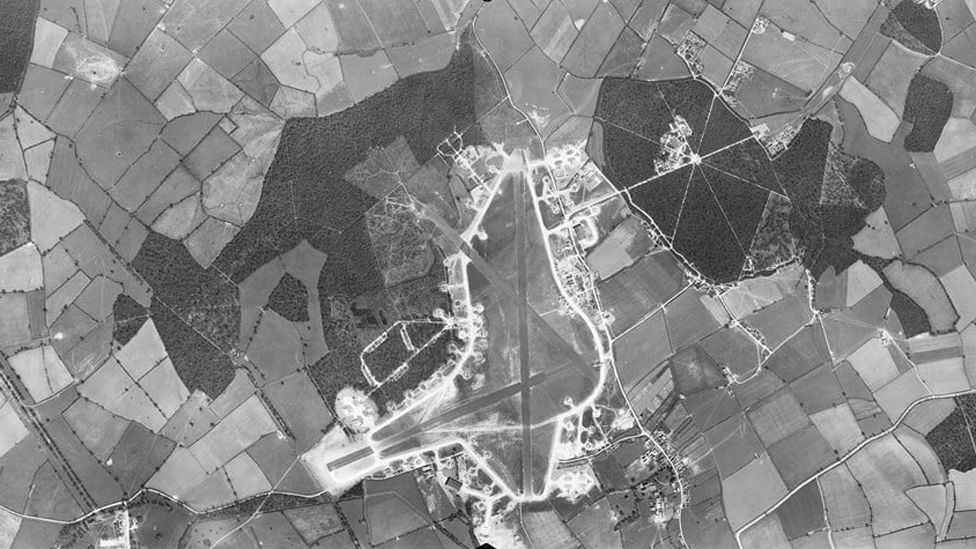
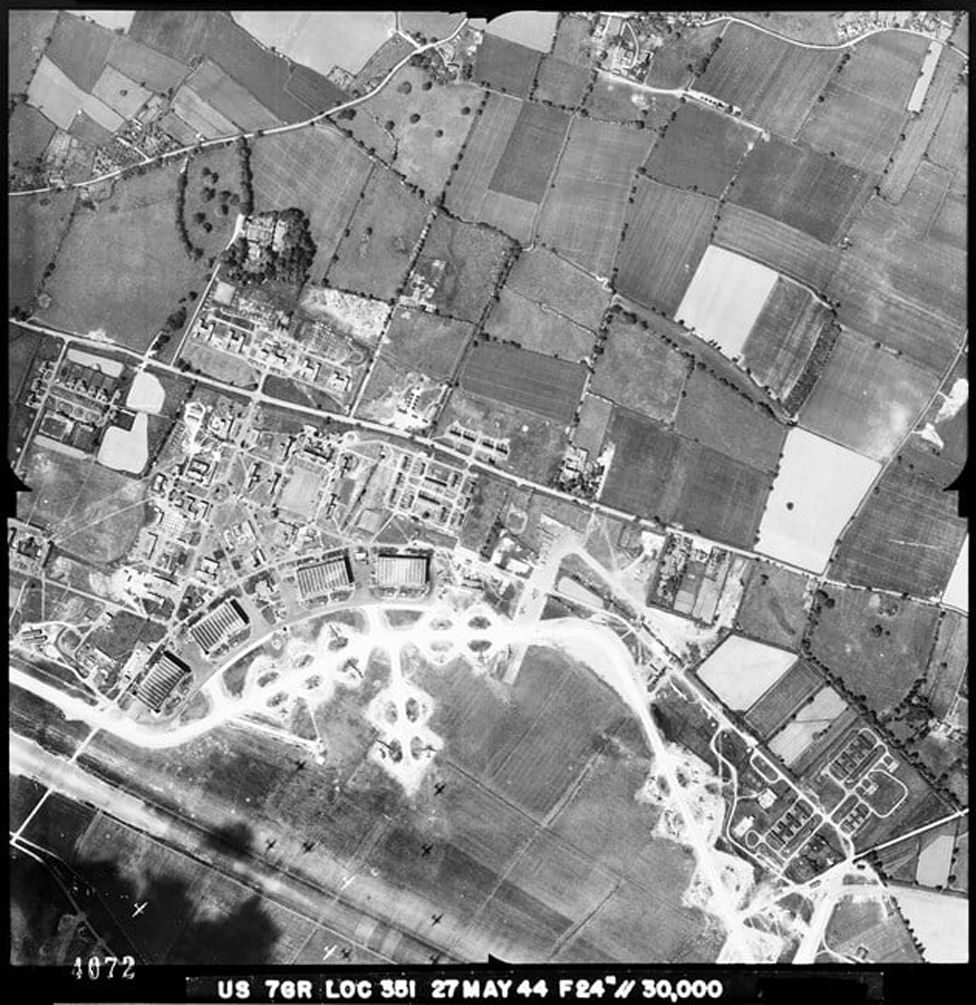
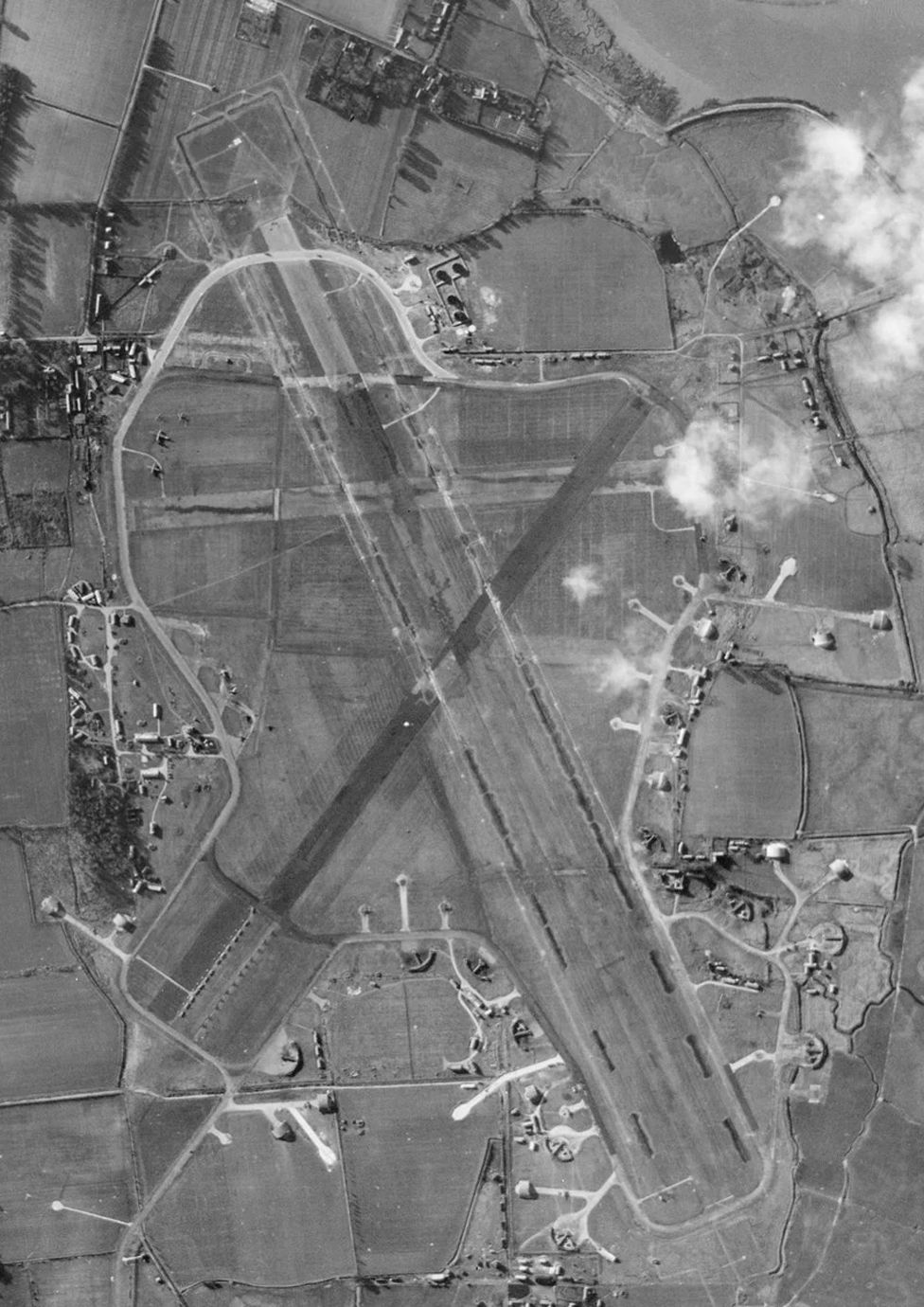
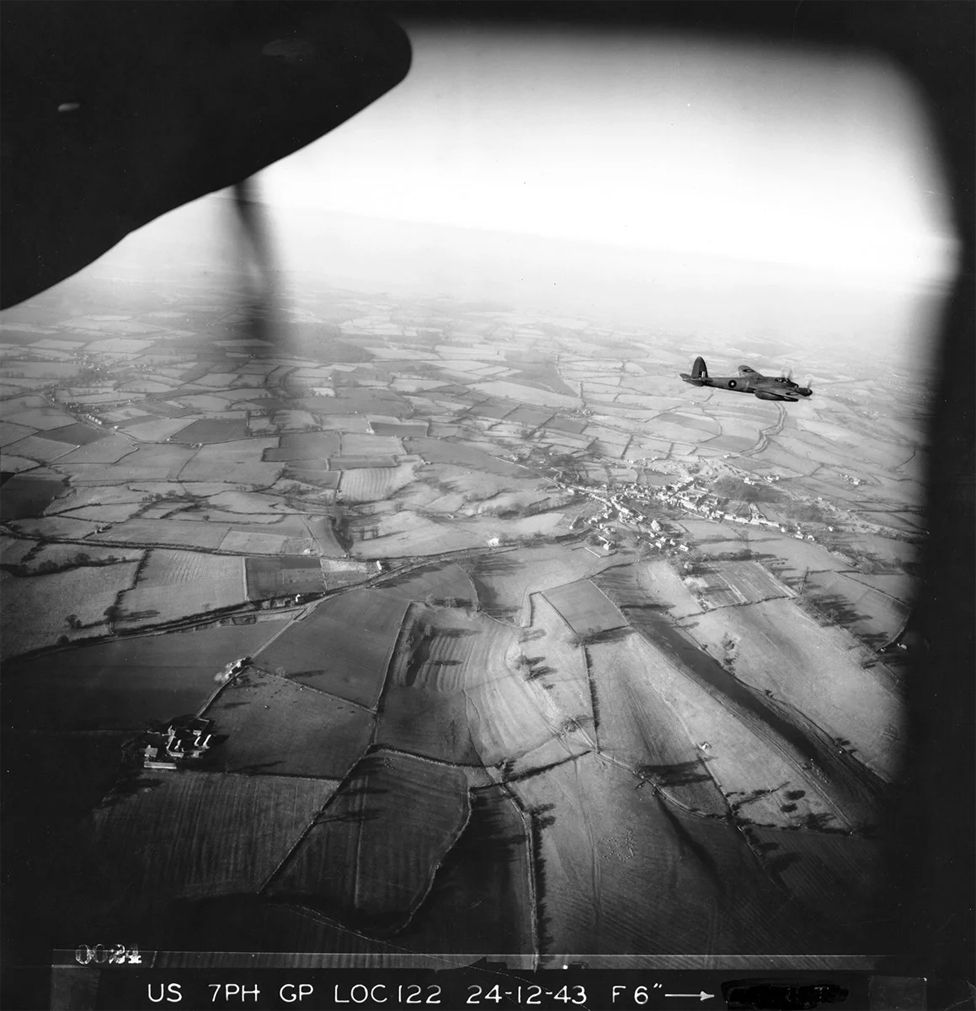
Duncan Wilson, chief executive of Historic England, said the collection recorded “changes taking place in England” as well as “capturing fascinating incidental detail, like American troops playing baseball”.
“Our collection of USAAF wartime photographs were taken in England by the pilots and aircraft of squadrons that provided intelligence for the eventual defeat of Nazi Germany,” he said.
“This came at a cost, with many pilots killed in the line of duty.
“We are making these images available to the public for the first time online, giving people access to this remarkable collection of historic photographs.”





